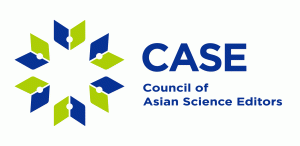Report on the Activities of Indonesian Association of Scientific Journal Editors (IASJE)
The Indonesian Association of Scientific Journal Editors (IASJE) is the official representative of the Council of Asian Science Editors (CASE) in Indonesia. HEBII aims to increase the editorial board’s capacity to manage scientific journals for the purpose of improving the quality of journals and accelerating their internationalization process through information exchange between editorial boards. The IASJE regularly manages training activities for journal editors under the Education and Training Committee. Due to the COVID-19 situation, journal workshops were also held online this year. Three webinars and one activity were held between June and August 2021 to select the national assessor for Scientific Journals Accreditation.The first online workshop on the strategy for and preparation of the internationalization of scientific journals was held on June 24, 2021, and this included the speaker Prof. Dr. Komang G. Wiryawan (President of IASJE) and moderator Dr. Yopi Novita (Chief of the Promotion and Information Dissemination Committee of IASJE). This webinar activity was held to accommodate the enthusiasm of journal editors in improving their capacity to manage reputable international journals. Currently, there are more than 100 Indonesian journals from various subjects that have been indexed in SCOPUS and ESCI Clarivate Analytics, although there were no Indonesian journals indexed in SCIE or SSCI Web of Science until 2021. As the number of Indonesian journals indexed in SCOPUS and WoS is increasing, there is hope that this can increase the visibility of publications and provide access to a global audience. In addition, it can promote the work of Indonesian researchers at the international level. A total of 92 editors from various scientific journals in Indonesia (both members and non-members of the IASJE) participated in the first workshop.
The second online workshop was held in collaboration with the “Tim Ketahanan Journal” Brawijaya University on July 16, 2021 on the topic of “Increasing the Score of Scientific Journal Accreditation Indicators.” The number of scientific journals in Indonesia is very large, but it still needs to be improved, especially with regards to the quality of articles being published. Scientific journal accreditation is an assessment activity for quality assurance of scientific journals through manuscript screening, management feasibility, and the timeliness of scientific journal publications. The purpose of the workshop was to provide information and tips on how to increase the management and content aspects of journal accreditation. The speakers were scientific journal experts in IASJE, Prof. Dr. Istadi, S.T., M.T. and Prof. Dr. Ir. This event was attended by 201 journal editors from across Indonesia.
Finally, the third online workshop on “The Ethics in Writing and Publishing Scientific Manuscripts” was held on August 13, 2021 and was attended by 182 journal editors. The speakers were Dr. L. Aswin Pramono, M. Epid, and SpPD., who gave a speech about ethical writing in Medicine and Health, and Prof. Dr. Rajab Ritonga, M.Si. who covered the social humanities perspective. The honest scientific reports will build trust between researchers and the scientific community. The presenters discussed the problems that appeared in ethical publications, including plagiarism, redundant publications, authorship disputes and ethical misconduct, conflicts of interest, and the fabrication or falsification of data.
Besides the online workshop journals, IASJE, in collaboration with the Ministry of Research and Technology, held a webinar titled “Perception Equation of Assessor Candidates for Accreditation of Scientific Journals year 2021,” which was held both virtually and in-person on March 25 and 26, 2021. The purpose of this activity was to make equal perceptions for assessor candidates in the period of 2021–2023 on the methods and standards of accreditation assessment so that the quality of accredited journals could be consistently maintained. A total of 410 participants were selected from various institutions in Indonesia, which were grouped into eight fields of subjects and management. The topics presented were the assessor’s code of ethics, plagiarism, technical accreditation of journals in the ARJUNA system, OJS, and equalizing perceptions for journal content assessment and management.
The webinar series that was held this year is expected to provide benefits and motivation for journal editors in Indonesia to develop and improve their journals’ reputability. Hopefully, these activities can be carried out again in future with better materials and a wider audience.Indonesian Association of Scientific Journal Editors 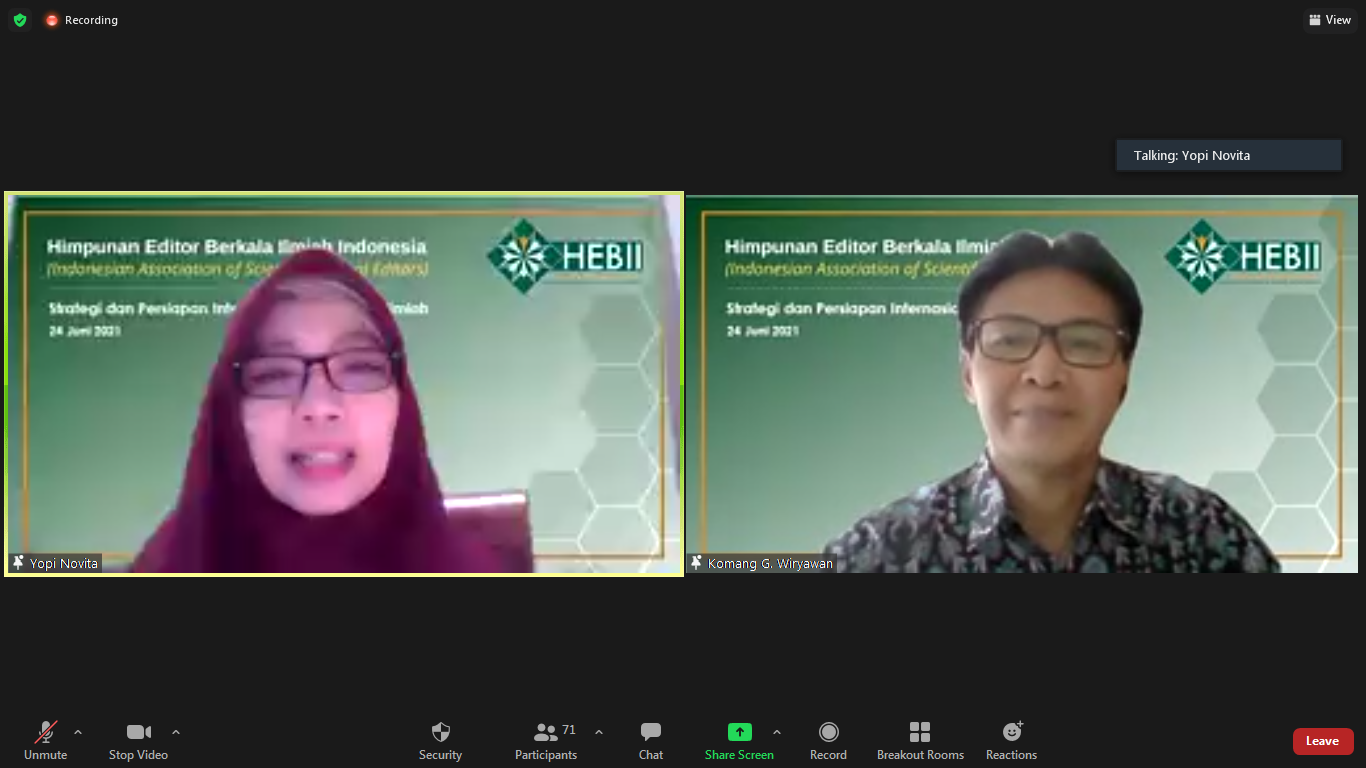
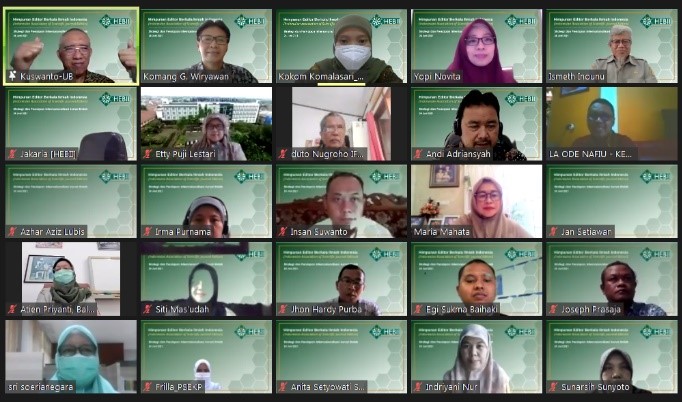
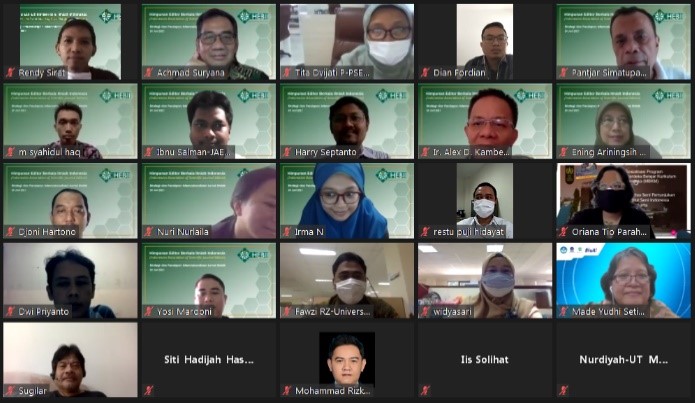
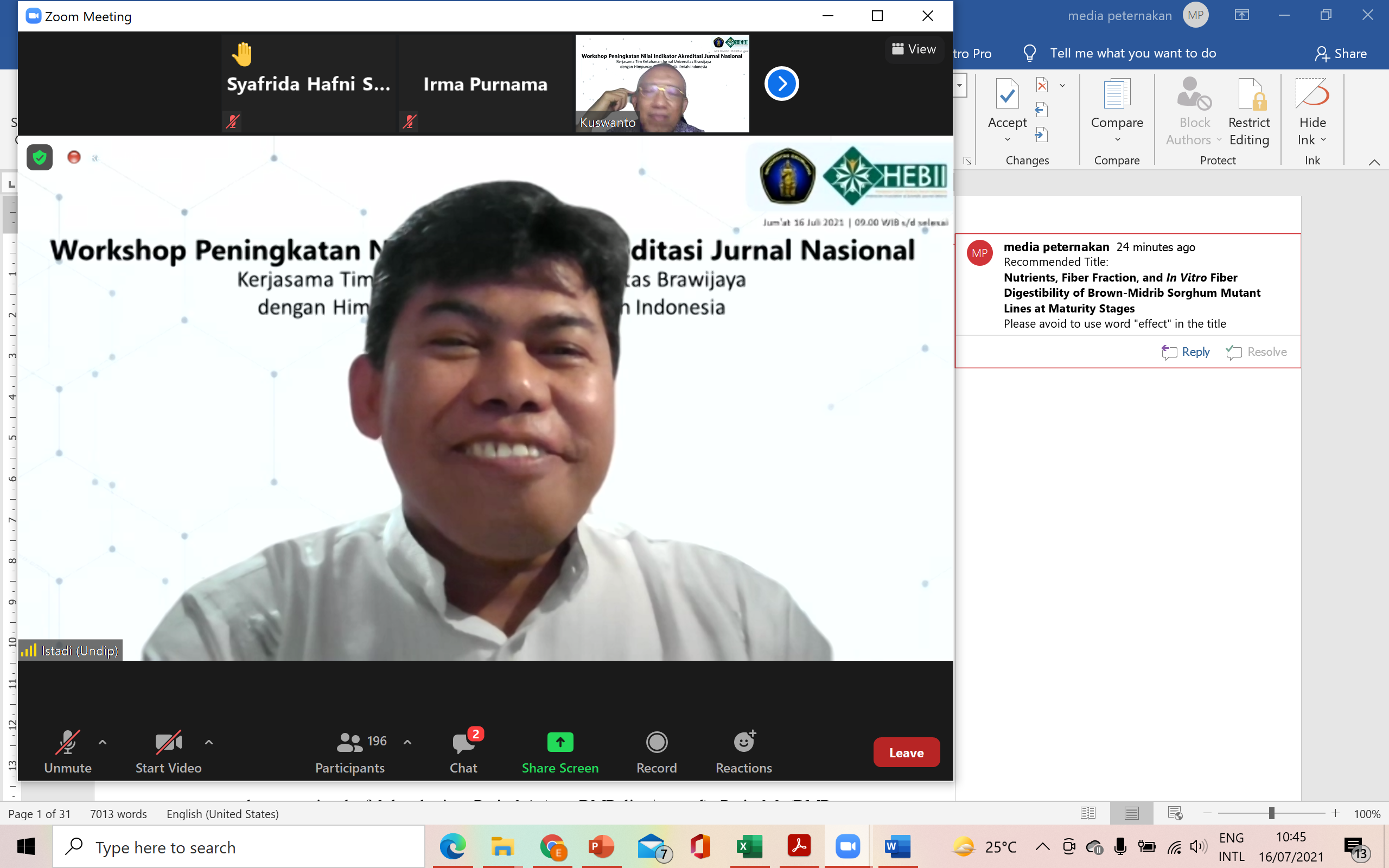
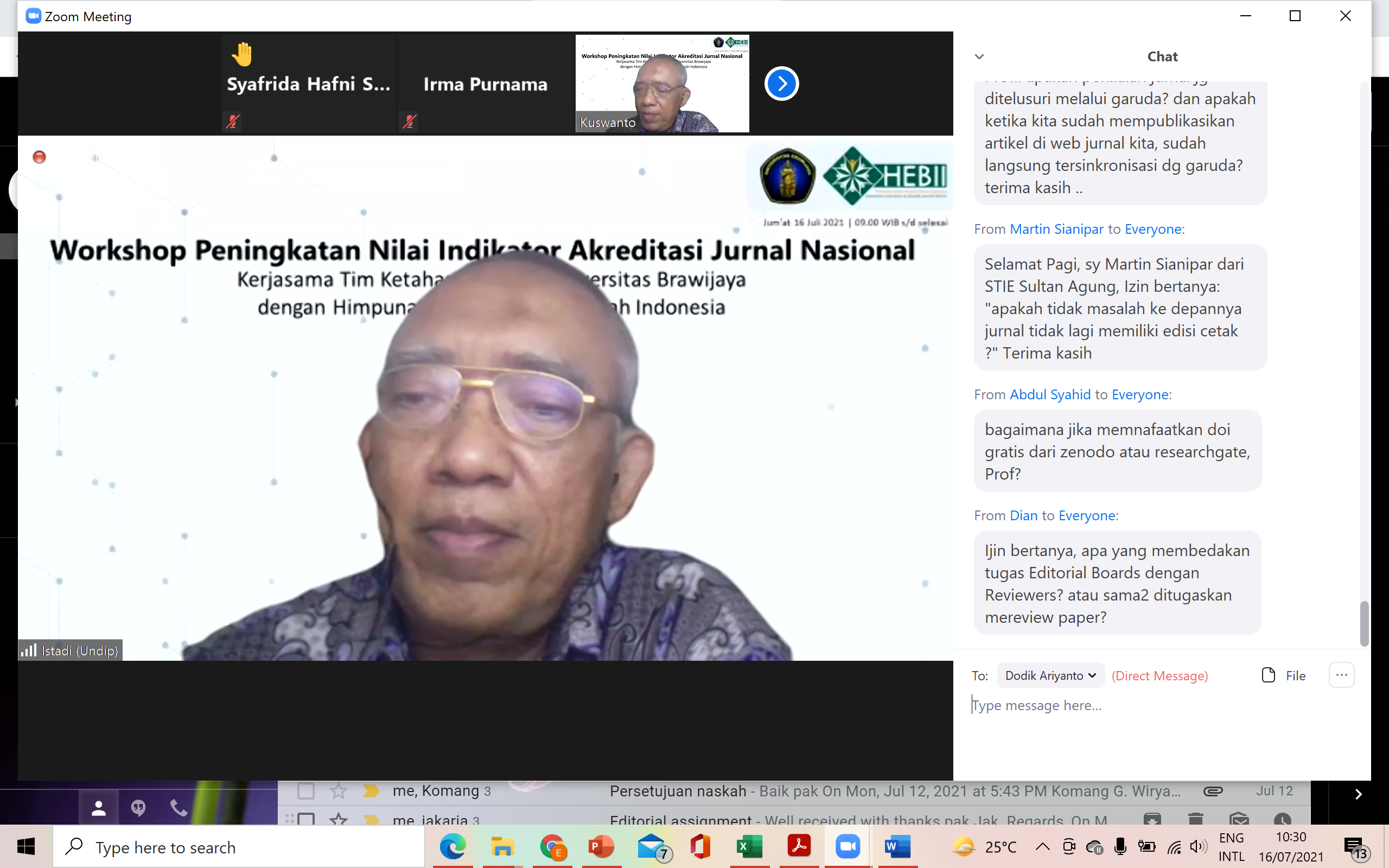
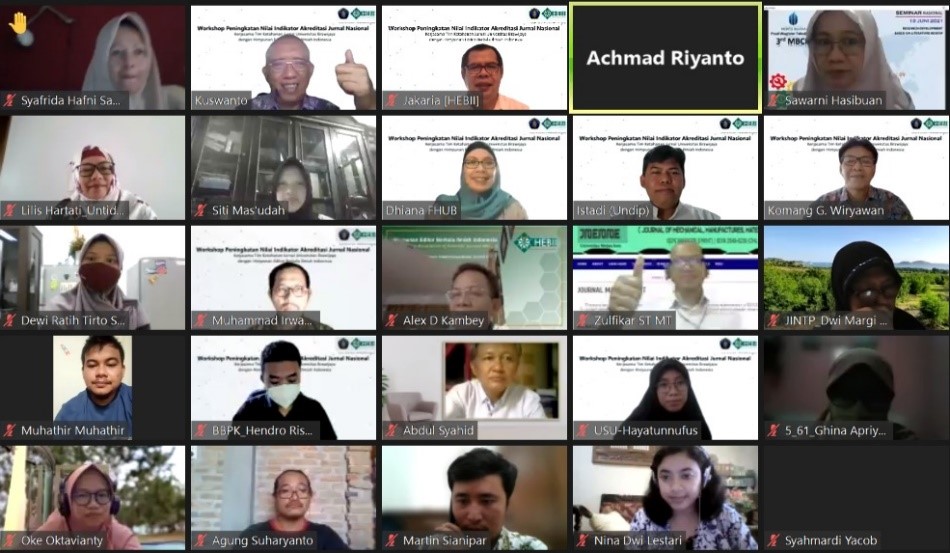

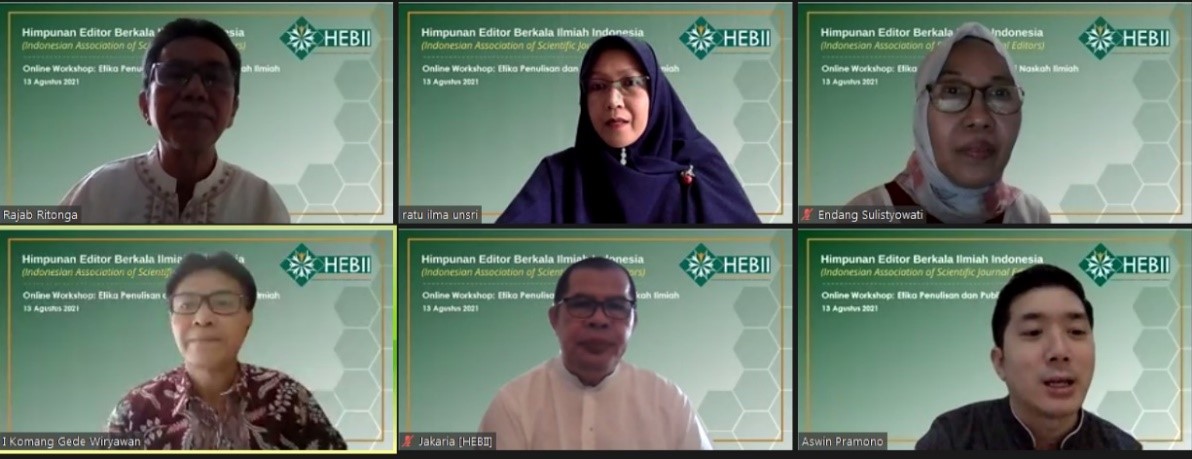
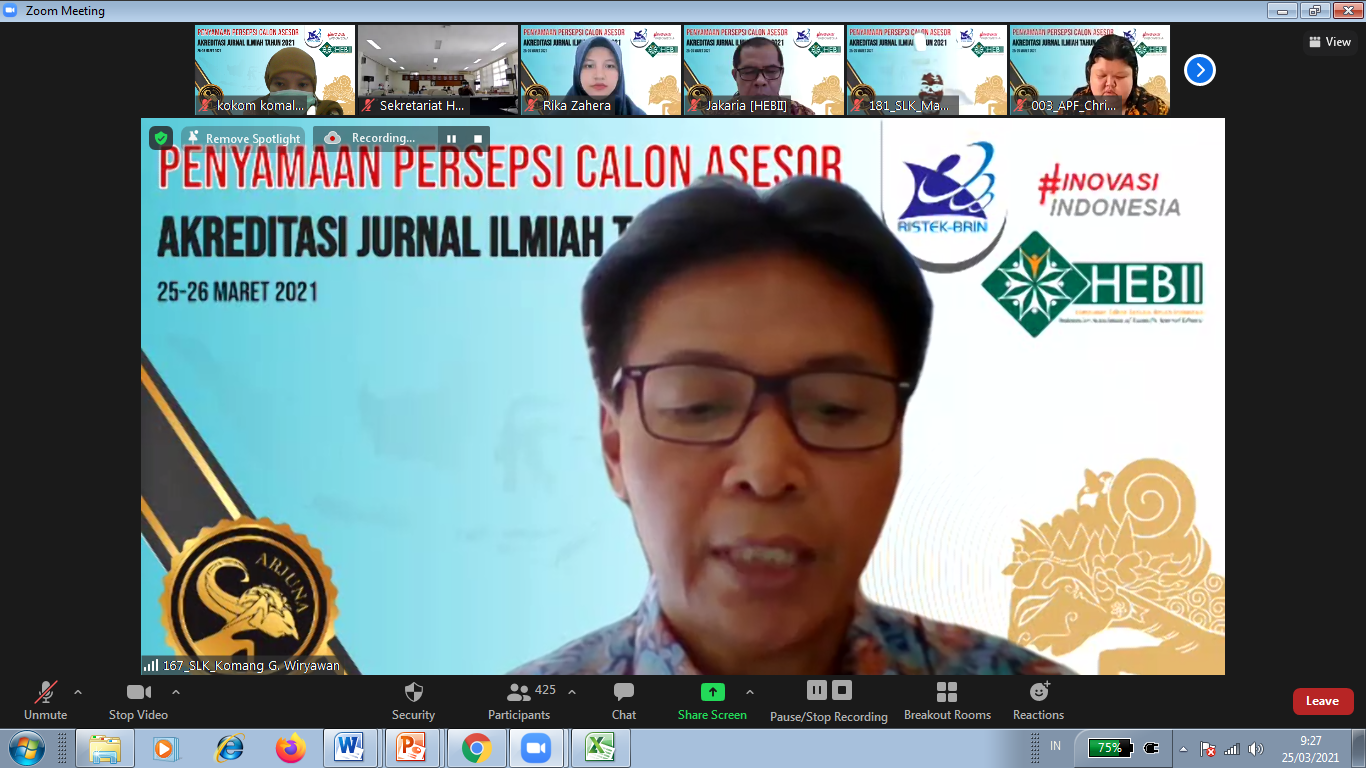
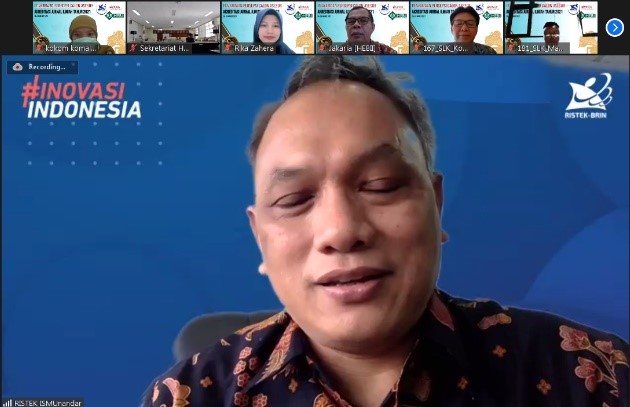
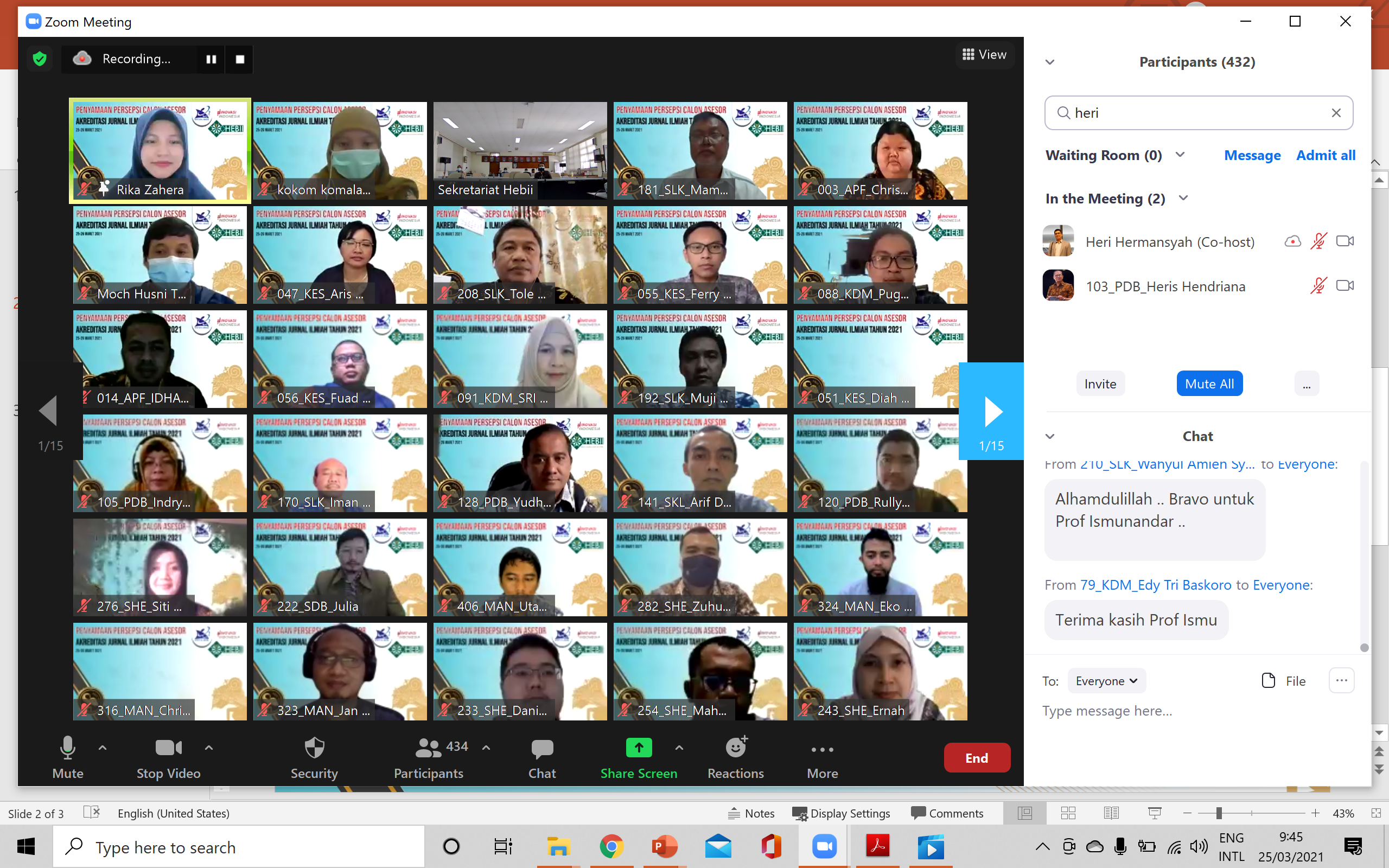
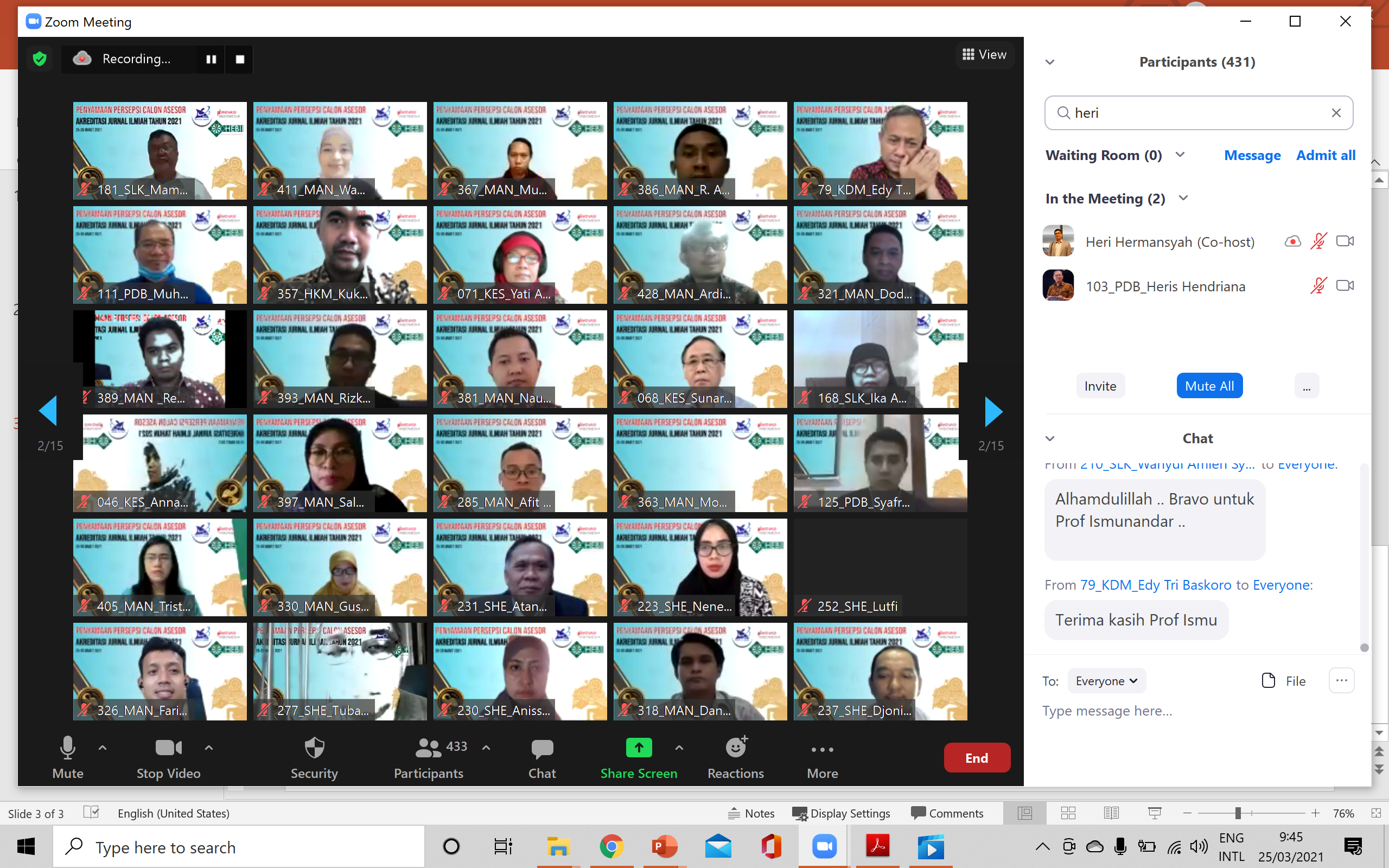
Secretariat
Gd. Fakultas Peternakan IPB, Jalan Agatis, Kampus IPB Dramaga, Bogor 16680, Indonesia
Email: asosiasieditor@gmail.com; Website: http://indonesianeditor.org
